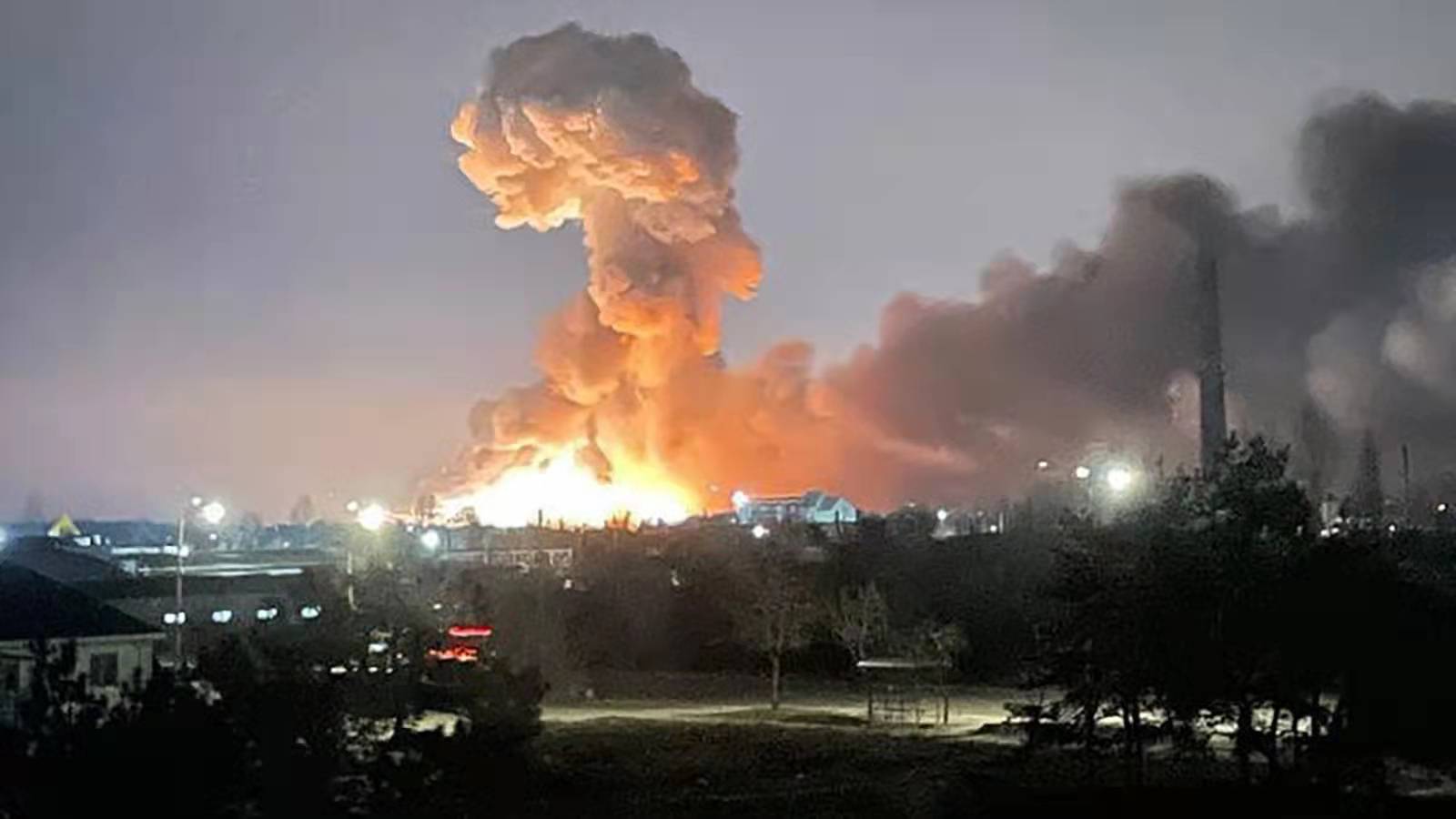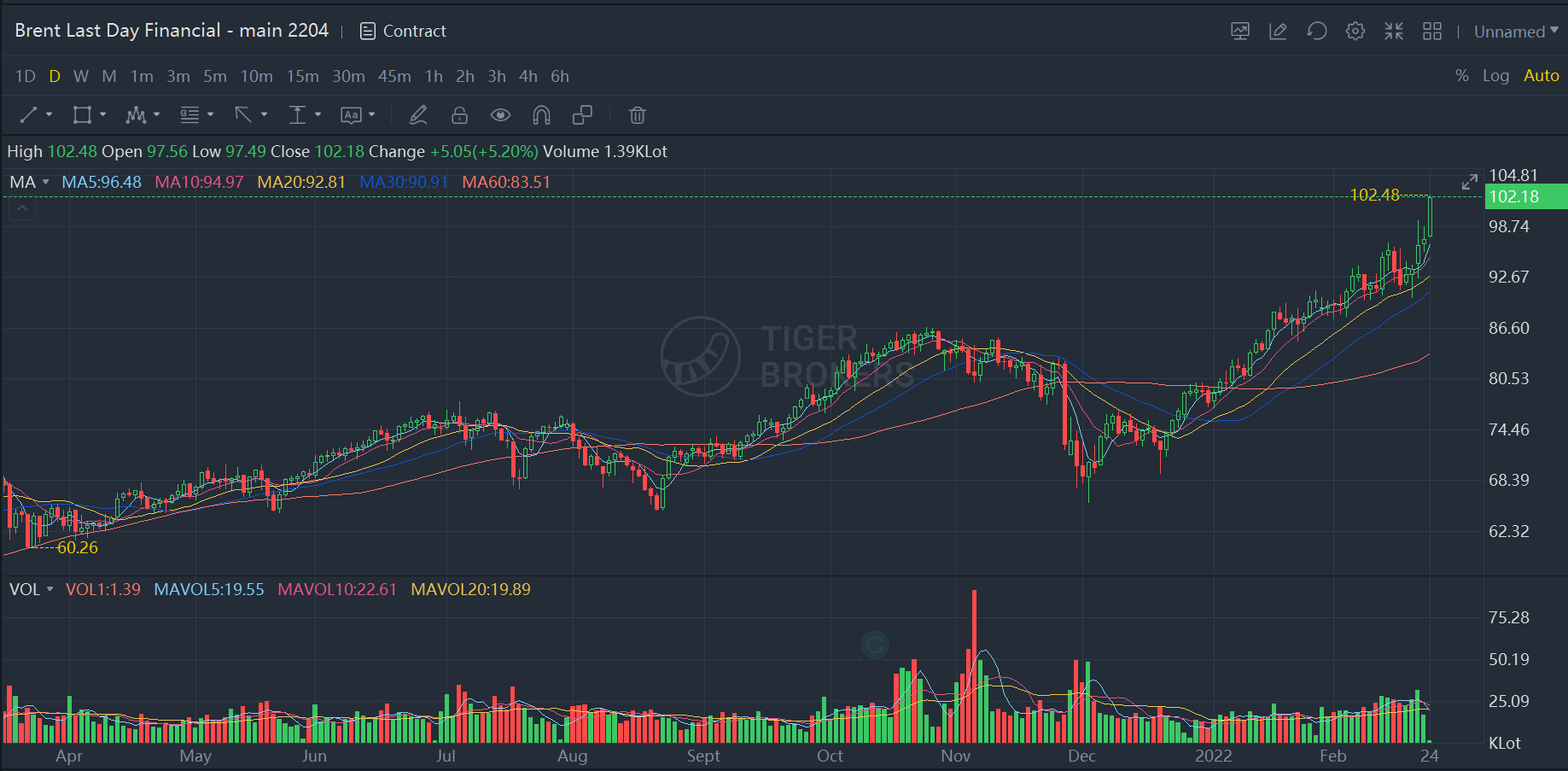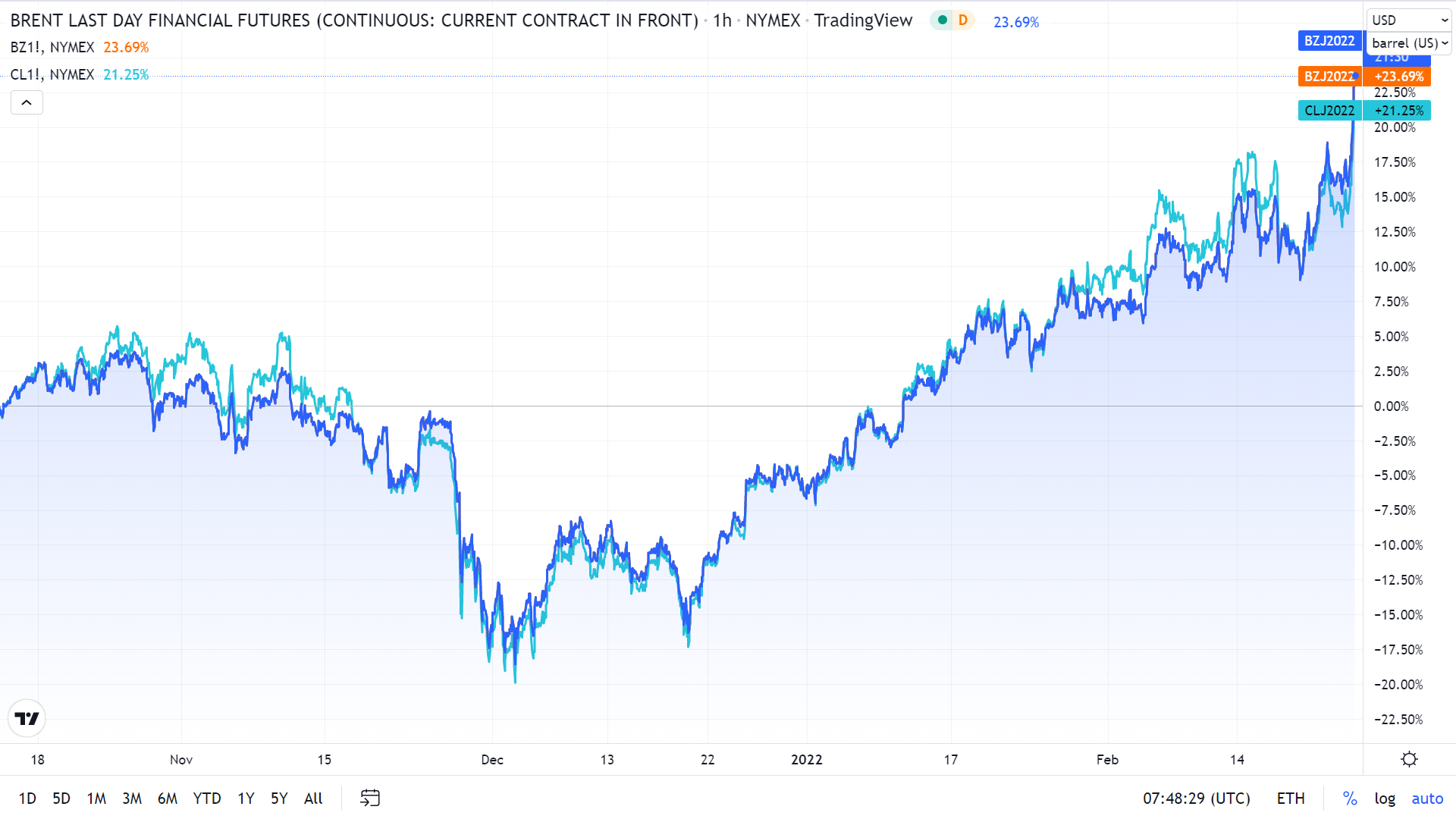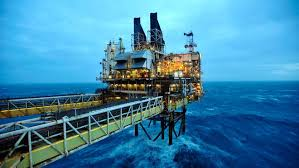Russia-Ukraine crisis: Oil Tops $105 - What's Next?

Currently, oil prices are still climbing, with Brent breaking $100 for the first time in three years. This surge is mainly driven by Putin’s war declaration.
 In addition to this eye-catching event, we should also pay attention to the interview of Russian Energy Minister, Nikolai Shulginov.
In addition to this eye-catching event, we should also pay attention to the interview of Russian Energy Minister, Nikolai Shulginov.
“The optimal oil price for the market is $55-$70 per barrel.”The minister said on Feb. 22th. He also mentioned that Russia is “increasing production within the agreed volumes.”
- Why did he say so?
The minister pointed out “oil so high is also hitting other sectors of the economy and slows demand growth” and “We are not in favor of high prices, we are in favor of stable supplies.”
Russia is aiming to increase its production, and negotiations over Iran indicate a high probability of more output.
- Will the two major oil producers affect oil prices?
- What is the peak of the crude oil rally?
- When should you sell your crude oil holdings?
Let's take a look at the expert views.
By James Kou (Feb. 23th):
Crude oil is likely to have hit this year's high, and it may begin to fall this year. Although the international macro situation changed rapidly and the crises in Russia and Ukraine became increasingly tense, the crude oil market underwent a short technical adjustment for four days.
From Beware of the oil price, it seems to hit the high point in Tiger Community
By EIA (Feb. 8th):
We expect Brent prices will average $90/b in February and forecast the Brent spot price will fall to an average of $87/b in 2Q22.
However, we expect downward price pressures will emerge in the middle of the year as growth in oil production from OPEC+ and US outpaces slowing growth in global oil consumption.
From the Short-term Energy Outlook
By JTD Energy Services (Feb. 14th):
One of the directors said: “Given that you’ve got this underinvestment in capital exploration, we’re running low on physical oil, we’re running short of supply. There is a scenario where we could vault past $120, even as high as $150 a barrel.”
From CNBC: Oil could vault as high as $150 a barrel, veteran analyst warns, as undersupply meets surging demand
By JPMorgan (Feb. 24th):
Oil prices are likely to average $110 in the second quarter as tensions over Ukraine continue to escalate.
This forecast assumes an escalation in tensions between Russia and the West over Ukraine, alongside a nuclear deal with Iran that would still return some supply to the market.
From Bloomberg: JPMorgan Sees Ukraine Risk Pushing Oil to $110 in Second Quarter
By TF Securities (Feb. 24th):
Crude oil prices are expected to be higher in the first half of the year and fall back in Q2. Against the backdrop of low oil inventories, the geopolitical risks will exacerbate the volatility in the crude oil market.
Crude oil prices are expected to peak in Q2 at a maximum of $120/barrel, and fall back month by month in the second half of the year to $90/barrel by year-end.
From What is the Peak of the Crude Oil Rally

This article collects the updated data and analyses about the oil market. Even though most of these experts take the geopolitical crisis into account, their forecast remains higher than the current price. But you should be critical of these suggestions because institutions change their guidances from day to day.
To learn more technical analyses about oil futures and stocks:
Oil Staged Price Target At $96? Long-term Threat May From Iran?
Oil Price Touches New High Since 2014: 3 Top Oil Stocks to Buy
Oil Prices Close to 7-year High, Is It Possible To Top $100?
SHARE YOUR VIEWS:
What’s your expectation on oil prices?
Will you continue to hold it or sell it at $100?
Will you buy oil at the current high price?
Disclaimer: Investing carries risk. This is not financial advice. The above content should not be regarded as an offer, recommendation, or solicitation on acquiring or disposing of any financial products, any associated discussions, comments, or posts by author or other users should not be considered as such either. It is solely for general information purpose only, which does not consider your own investment objectives, financial situations or needs. TTM assumes no responsibility or warranty for the accuracy and completeness of the information, investors should do their own research and may seek professional advice before investing.


[What]